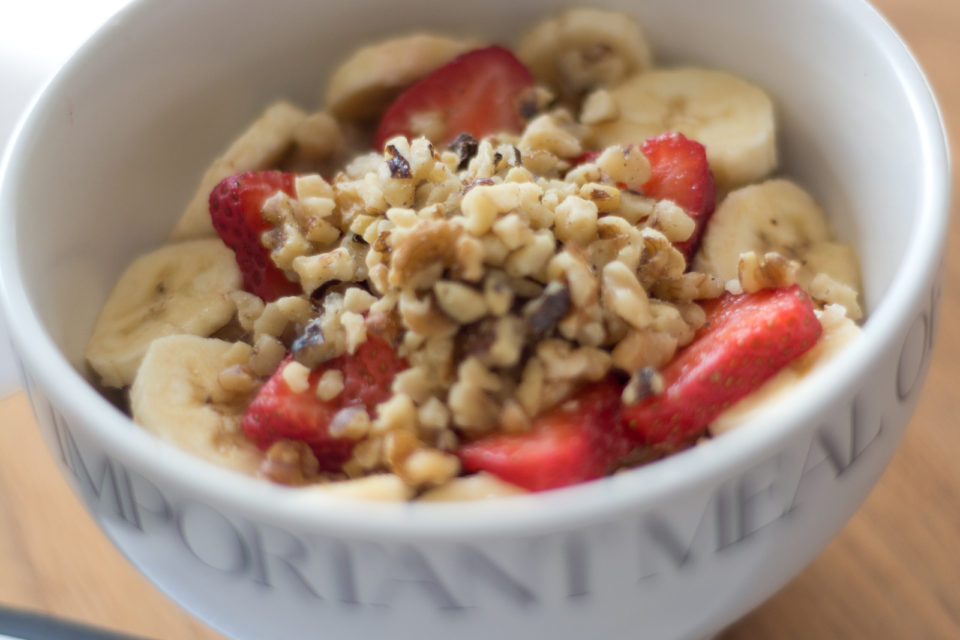Something’s happened recently that’s turned people’s understanding of food on its head. People come up to me all the time asking about the sweet stuff. No, not pop, pastries or punch. Their fears are focused on the flavourful family of fruits.
I can’t tell you how many times I’ve come across people who have cut all fruit from their diet because “sugar is toxic” or they heard fruit causes weight gain and diabetes.
I even had one woman ask me if she was “allowed” to eat bananas. She had been told bananas were fattening and thus had banished them from her grocery cart for not one, not two, but TEN years!
This fruit fanaticism has no basis in science, but rather is a remnant from the Atkins-era. It’s now perpetuated by new fad flavours, such as the Paleo and Ketogenic diets.
But with so many unregulated, self-professed “nutrition experts” condemning fruit for all, it’s no surprise people are questioning what was once a simple and healthy choice.
Bearing the Fruity Facts
I can’t put a fine enough point on this: avoiding fruit goes against the basic and well-established scientific fact that eating fruit and vegetables is one of the best things you can do for your health. No ifs, ands or banana buts about it.
Not only does fruit provide your body with exceptional amounts of vitamins and minerals, it is also loaded with antioxidants that guard against disease and fibre, which is key for a happy gut and healthy weight.
Some more flavourful facts for you: Fruit-rich diets are associated with a lower risk for obesity, high blood pressure, heart disease, type 2 diabetes and cancer. So why are so many health-conscious people banishing the fruit bowl altogether?
Sugar vs. Sugar
It’s basic bad food science: People think “All sugar is created equal” and “all sugar is created evil.” This couldn’t be further from the truth. Added sugar is the processed, refined sugar that is added to food and drinks with the sole purpose of boosting flavour and shelf-life. It adds calories and flavour–that’s it. Natural sugar, the stuff found in fruit, is delivered within a complex food matrix, including fibre, water, phytochemicals and vitamins and minerals needed to keep you healthy and prevent disease.
The Sugar on Top
It’s time to go back to the basics of what you know about food. The science of nutrition is complex. But eating food shouldn’t be. We grew up knowing that fruit was an important part of a healthy diet, and that hasn’t changed. There is absolutely no need to forego fruit and other sources of naturally-occurring sugar.
You should still work to keep your added sugar in check. Satisfying a sweet craving with a pear instead of a pop is a sure way to cut calories while boosting the nutrition in your diet.
If you haven’t been diagnosed with a specific health condition or have a fruit allergy, you don’t need to be cautious with your intake. If you need to watch your carbohydrate intake or avoid specific foods, always talk to your Health Care Provider or Registered Dietitian so they can design a plan just for you.
Of course, the most important tip is to stay sensible. No matter how healthy a food is, we can still overdo it. For most adults, a good goal is to aim for seven to ten servings of fruit and vegetables each day, more veggies than fruit. Stick with the real thing and enjoy your servings of fruit throughout the day.
A Fruity Farewell,






